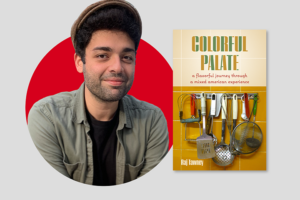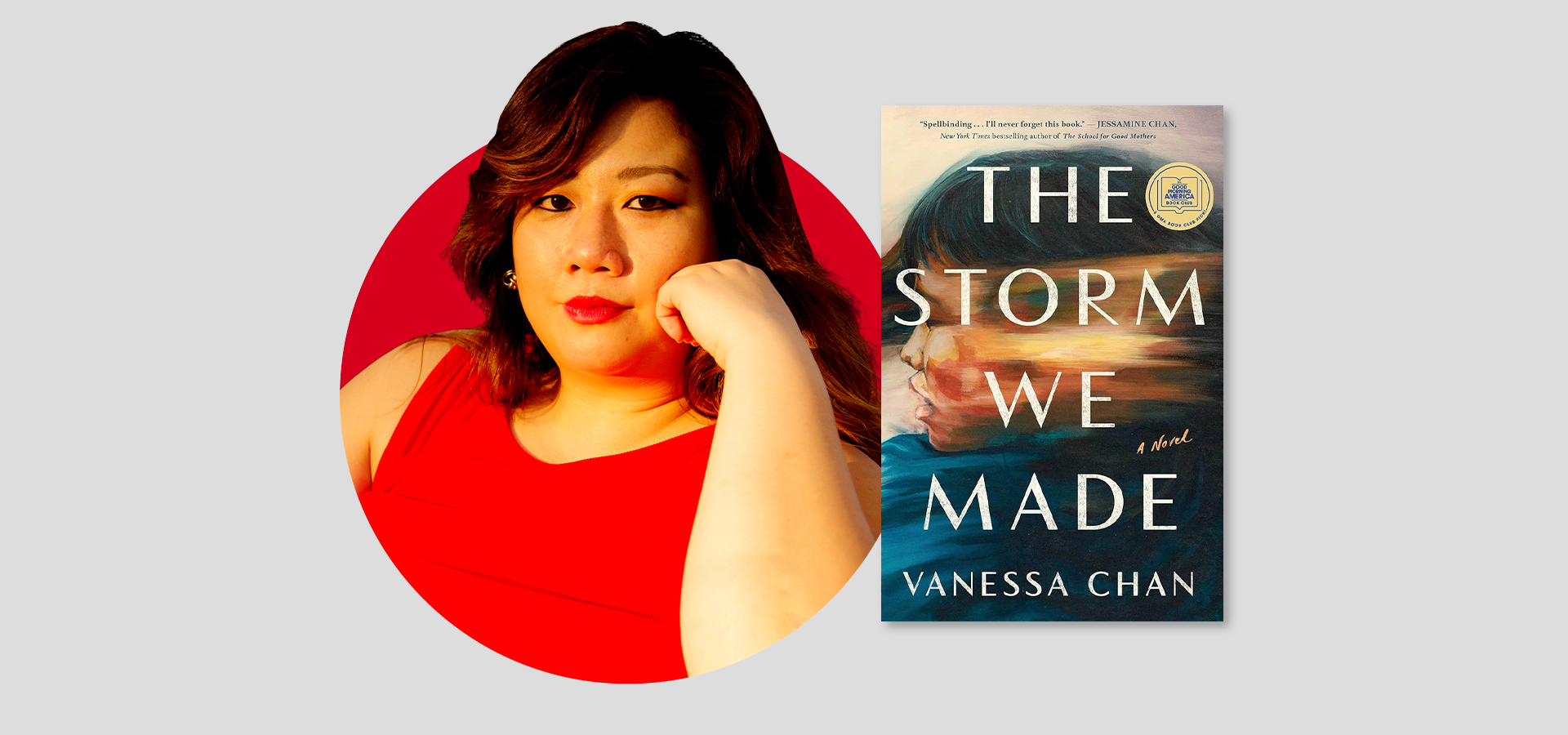
Vanessa Chan | The PEN Ten Interview
January 30, 2024
A sweeping epic capturing the human cost of colonization and conflict, Vanessa Chan’s The Storm We Made marks the arrival of a vital new voice in fiction. In this captivating novel, a Malayan mother becomes an unlikely spy for the invading Japanese forces during WWII, triggering consequences that will resonate in the lives, loves, and losses of her community and family.
In conversation with Literary Awards Program Director Donica Bettanin, Vanessa Chan discusses the difference between being a writer and being an author, the importance of literary community, and why translators are “simply the best people in the world.” (Bookshop, Barnes & Noble)
1. The Storm We Made artfully and affectingly interweaves intimate family life with significant historical events. Did one element—the characters, the setting—come to you first, or was the complete picture with you from the beginning?
I envy so much the writer whose book is a complete picture from the beginning! Mine certainly wasn’t. It wasn’t even meant to be a novel—it started as a throwaway homework assignment in a writing class. That said, I think the element that was always present were the anecdotal stories that form the backdrop of the novel—the ones that my grandmother told to me. They’re not always the most obvious things in the narrative; sometimes they’re throwaway comments like when one character describes how to avoid getting killed by an airstrike, or when another talks about how they mix tapioca and paper in with rice rations to make them last longer. It was these kinds of details that I’ve always known that made the first threads of The Storm We Made.
2. The book also moves between the points of view of four characters in two different time periods, a layering that captures the varying experiences even members of a single family can have of colonization and war. Was it a creative challenge to balance these points of view in the writing process?
It certainly required a lot of pacing around my apartment muttering to myself to keep it all straight! I do not recommend! Just kidding. I always knew the novel would have multiple points of view because of all the different experiences and locations my characters were going to be. Two are at home, one is on the run, one is at a labor camp faraway. And once I realized, oh dear, it will also have to be in two timelines to show the cause and effect of Cecily’s actions as a spy on her children and community, I just resigned myself to the complexity. As a writer, I serve the story, and this is what the story demanded!
“I always knew the novel would have multiple points of view because of all the different experiences and locations my characters were going to be. Two are at home, one is on the run, one is at a labor camp faraway. And once I realized, oh dear, it will also have to be in two timelines to show the cause and effect of Cecily’s actions as a spy on her children and community, I just resigned myself to the complexity.“
3. You have described the role your family played in the inspiration, research, and even fact-checking of the book. How have they responded to the finished product?
They are beyond proud. My dad sends me every press clip from Malaysia, and friends and family in Malaysia are sending me photos of them purchasing the book and reading it. I have distant cousins and family friends I didn’t know about reaching out to me on social media. It’s all very cute.
4. If you could claim any writers from the past as part of your own literary genealogy, who would your ancestors be?
I feel connected to Eileen Chang and Min Jin Lee for the content of their novels since both Lust Caution and Pachinko cover similar time periods and the effects of colonization. But the problem with being a Southeast Asian writer is there aren’t many of us. We are a small, but mighty group, but given most of us have begun writing more recently (and only more recently has SEA literature been making inroads outside of SEA), a genealogy is difficult to build, even an imagined one.
“Book people are really nice. I’ve worked in many industries where everyone is mean and screams all the time, and book people are simply not like this.“
5. There are a lot of phases to publishing a book that not everybody knows about. Was there a point you would say was the most surprising or challenging for you as a debut author?
There’s a fair amount of waiting! It takes a long time to publish a book and publish it well, and there are periods of time where you’ve sold your book, it’s been edited, then nothing seems to be happening (but I had to learn that lots of things happen behind the scenes!) Also, book people are really nice. I’ve worked in many industries where everyone is mean and screams all the time, and book people are simply not like this. They are mostly very earnest and love books and want the best for books.
6. The Storm We Made will also be published in twenty other countries (and counting, I’m sure!) Has anything about international responses to the book stood out to you?
I was very surprised and touched to get an offer of publication from Japan. The book is obviously critical of the actions of imperial Japan during WWII, and it’s wonderful to know that my book will have a place in the shelves of Japanese literature and history. Also, translators are simply the best people in the world. Many of them across the world have reached out to me to make sure they are accurately translating certain phrases in the book—they give the text so much care. They are generously doing labor that not many people can do—to bring my book to the world.
7. What role does community play in your writing process? Do you have a writing group, or trusted readers who you rely on for feedback?
I do. I have a remarkable group of friends who keep me grounded and sane, and who read my work when I am unsure of it. I don’t believe you can go through a publishing journey alone, especially as a writer of color.
8. Following on from the previous question, which fellow writers working today are you most excited by?
Gina Chung (Sea Change and Green Frog), Jemimah Wei (The Original Daughter), Temim Fruchter (City of Laughter), Grace Shuyi Liew (Most Beautiful Things), Jami Nakamura Lin (The Night Parade), Qian Julie Wang (Beautiful Country), Jenny Tinghui Zhang (Four Treasures of the Sky)—the list is so long, but these are a few.
“As a writer, I am a cave troll in my grubby blue bathrobe, writing in the dark, lit only by my computer screen, talking to my imaginary friends and moving them around the page. As an author I dress up, shake hands, meet people, do events, become a salesperson and politician.“
9. What do you read (or not read) when you’re writing?
I watch tons of TV and will actually watch a lot of genres of TV that I don’t typically feel as drawn to read. For example, I love sci-fi and rom-coms on TV, even if I don’t maybe read as many of them. I love a procedural; I love a period drama. Anything really. I’m not very discerning. Obviously I read a fair bit too—love a wild, ambiguous character with dodgy intentions and a sharp tongue. Frances Cha’s If I Had Your Face is a big favorite of mine.
10. Writing is often a private and intimate process. Now, The Storm We Made will also belong to readers. How have you prepared for that?
I separate being a writer from being an author. As a writer, I am a cave troll in my grubby blue bathrobe, writing in the dark, lit only by my computer screen, talking to my imaginary friends and moving them around the page. As an author I dress up, shake hands, meet people, do events, become a salesperson and politician. For me, being able to see those things as two separate jobs has been helpful in releasing my book to the world.
Vanessa Chan is the author of The Storm We Made (Marysue Rucci Books, Jan 2024), a national bestseller, Good Morning America Book Club pick and BBC Radio 2 Book Club pick. Acquired by international publishers in a flurry of auctions, the novel, her first, will be published in more than twenty languages worldwide. Her other work has been published in Vogue, Esquire, and more. Vanessa was born and raised in Malaysia and is now based mostly in Brooklyn.
The PEN Ten Interview Series
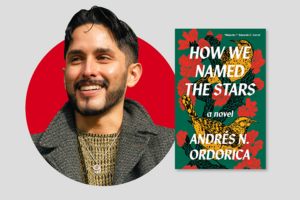
Andrés N. Ordorica | The PEN Ten Interview
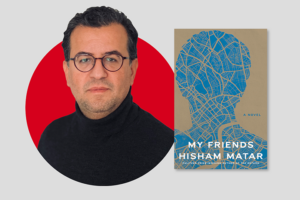
Hisham Matar | The PEN Ten Interview
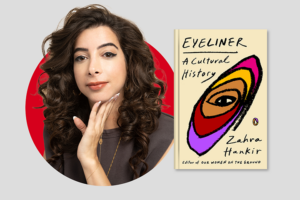
Zahra Hankir | The PEN Ten Interview
